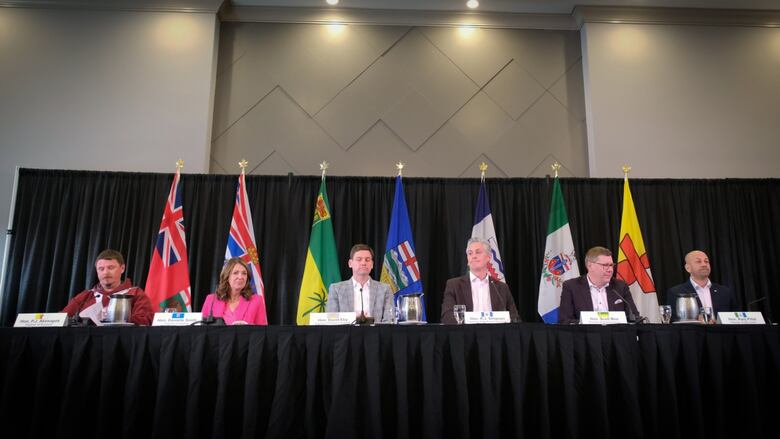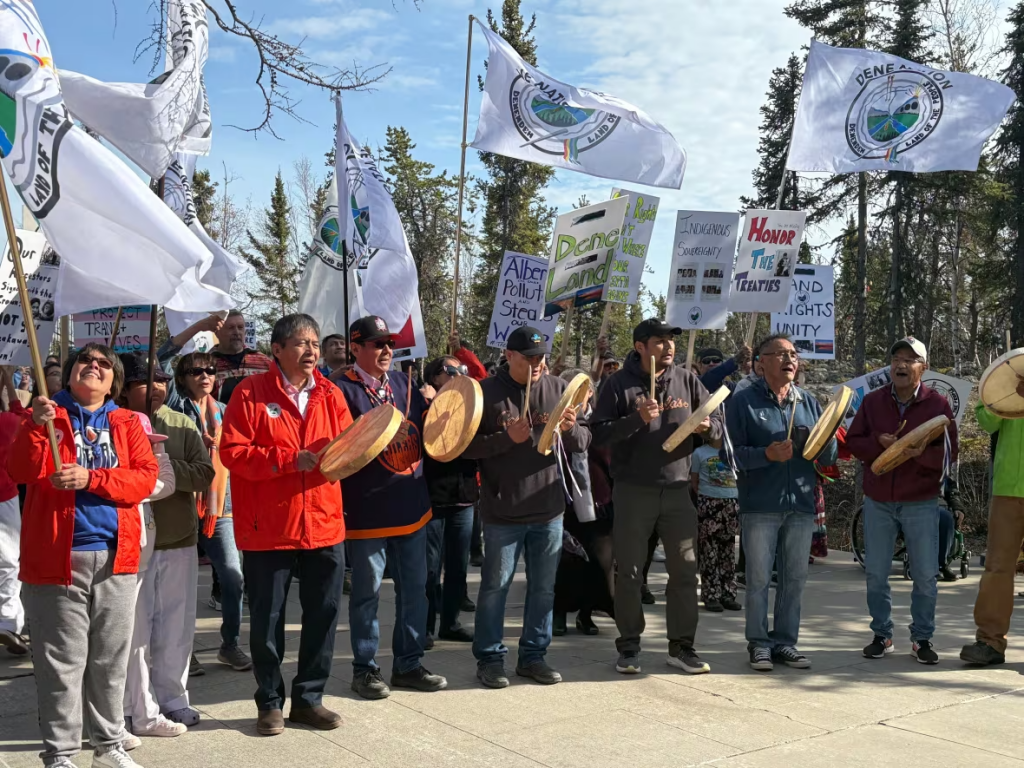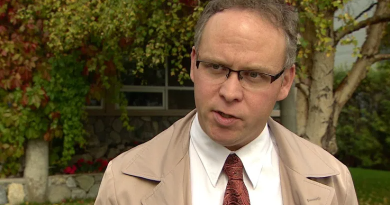Northern premiers show openness to removing trade barriers with western provinces

At Western premiers’ summit, provincial premiers invite territories to join western trade bloc
Territorial premiers are signalling openness to removing trade barriers with western provinces, but not without conditions.
Speaking after the conclusion of a western and northern premiers’ summit in Yellowknife on Thursday, Yukon Premier Ranj Pillai said B.C., Alberta, Saskatchewan and Manitoba have invited the territories to join their trade pact, the New West Partnership Trade Agreement.
“They’ve opened up the door for us, with flexibility and respect to the North, for us to sign on to the western trade agreement that’s in place,” said Pillai. “My sense from my colleagues from the other territories, and ourselves from the Yukon, are that’s something that we think is important.”
In a joint statement on Thursday, the western premiers urged all provinces and territories to join the New West Partnership.
The federal government prioritized freeing up trade within Canada after U.S. President Donald Trump launched a trade war with Canada in the winter. Prime Minister Mark Carney has said his government and Canada’s premiers have agreed to developing a national trade strategy.
On Thursday, the western and northern premiers said “unjustified and unreasonable tariffs” are creating uncertainty for workers and businesses in western Canada. They called on the federal government to “reassess” Canada’s retaliatory tariffs and their impacts on people in Canada.
Indigenous gov’ts must be involved in trade decisions: Pillai
It’s unclear what joining the western trade bloc would mean for existing protections for Northern and Indigenous businesses.
In the Northwest Territories for example, the Business Incentive Policy (BIP) gives preferential treatment to N.W.T.-owned businesses bidding on government contracts. The Yukon has a similar procurement policy related to Yukon First Nations-owned businesses.
Pillai pointed to the North’s high concentration of modern treaties and said “we can’t make a unilateral decision about removing a certain exception without sitting down with Indigenous governments and figuring out what’s best for all northerners.”
Earlier this month the northern premiers said they would explore the possibility of a “territorial trade zone” that would account for modern treaties.
N.W.T. Premier R.J. Simpson did not commit outright to maintaining BIP if and when trade barriers come down, but said on Thursday that his government does want to make sure that public money spent in the North benefits northerners.
“We’re not opposed to inviting companies from other parts of Canada to come up here and do business and work, but we need to make sure that we have the ability to support local businesses so that we don’t just become a colony for the rest of Canada,” he said.
Simpson said previously that efforts to allow freer trade across Canada will likely mean the N.W.T. will have to “give up some things.”
Saskatchewan Premier Scott Moe called the New West Partnership the “gold standard” when it comes to free trade, labour mobility and procurement rules.
Moe said the western provinces would consider some exemptions for the territories, should they choose to join.
“The four host provinces of the New West Partnership are more than willing to look at that,” he said.

The premiers talked about a range of issues in their closed-door meetings, including energy and Arctic security, economic corridors, housing, drug trafficking and emergency preparedness.
But outside those meeting rooms, the conference was overshadowed by Alberta separation rhetoric, and worries about the impacts on N.W.T. young people of Alberta’s Bill 26, which restricts gender-affirming care for minors.
Wednesday evening, after the first day of meetings, the Dene Nation and the Northern Mosaic Network held rallies outside the Legislative Assembly building in Yellowknife to show support for treaty rights and trans rights.
Last week Alberta Premier Danielle Smith’s government passed legislation that would make it easier to hold a referendum. At the same time, separatist groups in the province have been pushing for a provincial vote on Alberta seceding from Canada.
Dene National Chief George Mackenzie said the Smith government’s actions send a message to the Treaty people of Alberta: “If you’re not happy, leave Alberta.”
“To say that to Alberta Natives is like a slap in the face. An insult,” Mackenzie told CBC.
Treaties 6, 7 and 8 encompass vast swaths of territory in Alberta and other provinces. Treaty 8 also covers a portion of the Northwest Territories.
On Thursday, Smith re-stated her desire for “a sovereign Alberta within a united Canada.”
“The frustration that Alberta has, has been that it’s been a lot easier to do business with our southern neighbour than it’s been to do business across the country,” she said.
Smith said that if Carney acts on ideas in the western and northern premiers’ joint statement, “it would take the wind right out of any [separation] effort.”
Related stories from around the North:
Canada: Nunavut premier looks back on gov’t achievements as MLAs return for spring sitting, CBC News
Denmark: Danish PM pledges to support Greenland against Trump pressure, Thomson Reuters
Finland: US, Norwegian forces in Lapland for rapid reinforcement exercise, The Independent Barents Observer
Iceland: Iceland’s FM announces defence review, calls revamped security policy ‘urgent’, Eye on the Arctic
Norway: NATO’s new air command center will be built in Bodø, Norway, CBC News
Russia: Russia’s nears completion of new Arctic missile carrier, The Independent Barents Observer
Sweden: Sweden’s Armed Forces: Railways must function without modern technology, Radio Sweden
United States: White House releases U.S. Arctic strategy implementation plan, Eye on the Arctic



